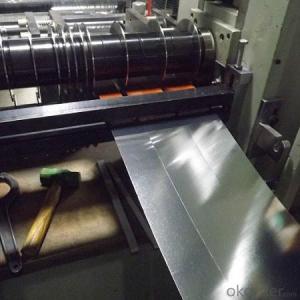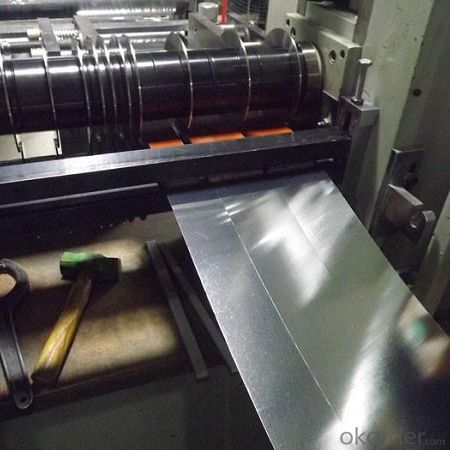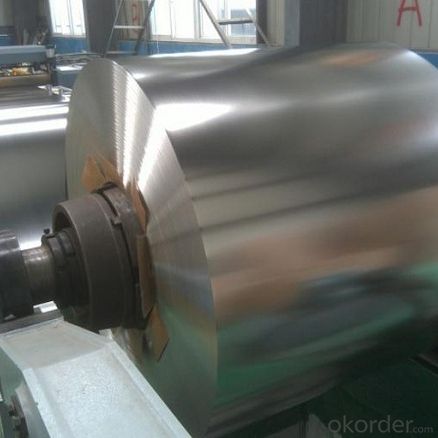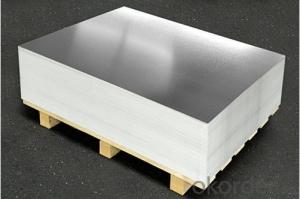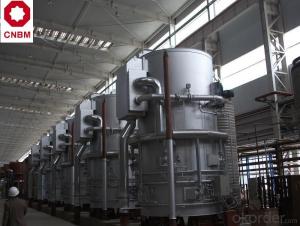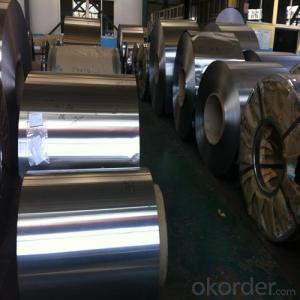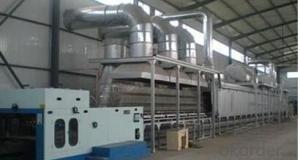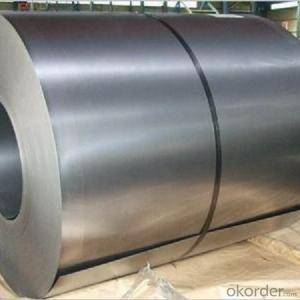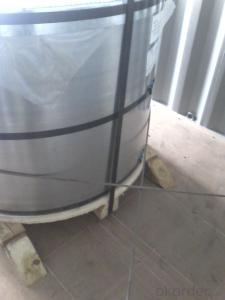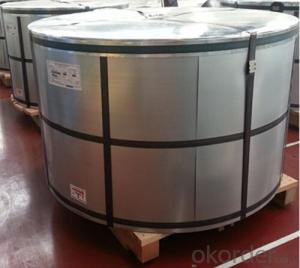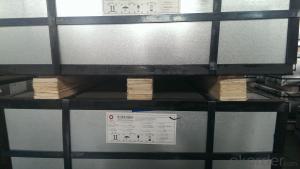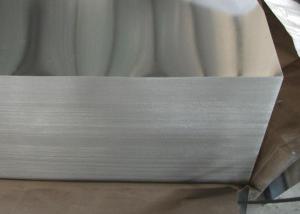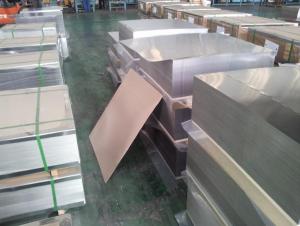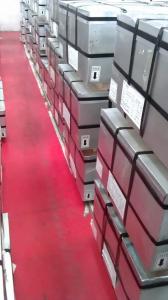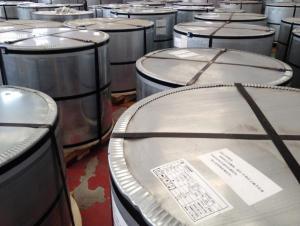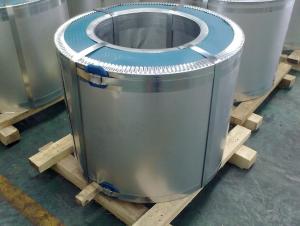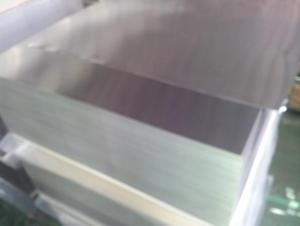Tinplate with Prime Quality for Cans Making
- Loading Port:
- Tianjin
- Payment Terms:
- TT or LC
- Min Order Qty:
- 25 m.t.
- Supply Capability:
- 20000 m.t./month
OKorder Service Pledge
OKorder Financial Service
You Might Also Like
Specification
Tinplate with Prime Quality for Cans Making
Tinplate Specification
Tinplate, as the name suggests, is coated on both sides with pure tin at various coating weights between 1 and 12 grams per square meter. It has extremely beautiful metalllic luster as well as excellent properties in corrosion resistance, solder ability, and weld ability.
Tinplate Applications
Tinplate is widely used for making all types of containers, electrical machinery parts and many other products.
Chemicals and painting cans
Dry food cans, such as fancy cans, biscuit cans, milk powder cans, tea cans.
Tinplate Pictures
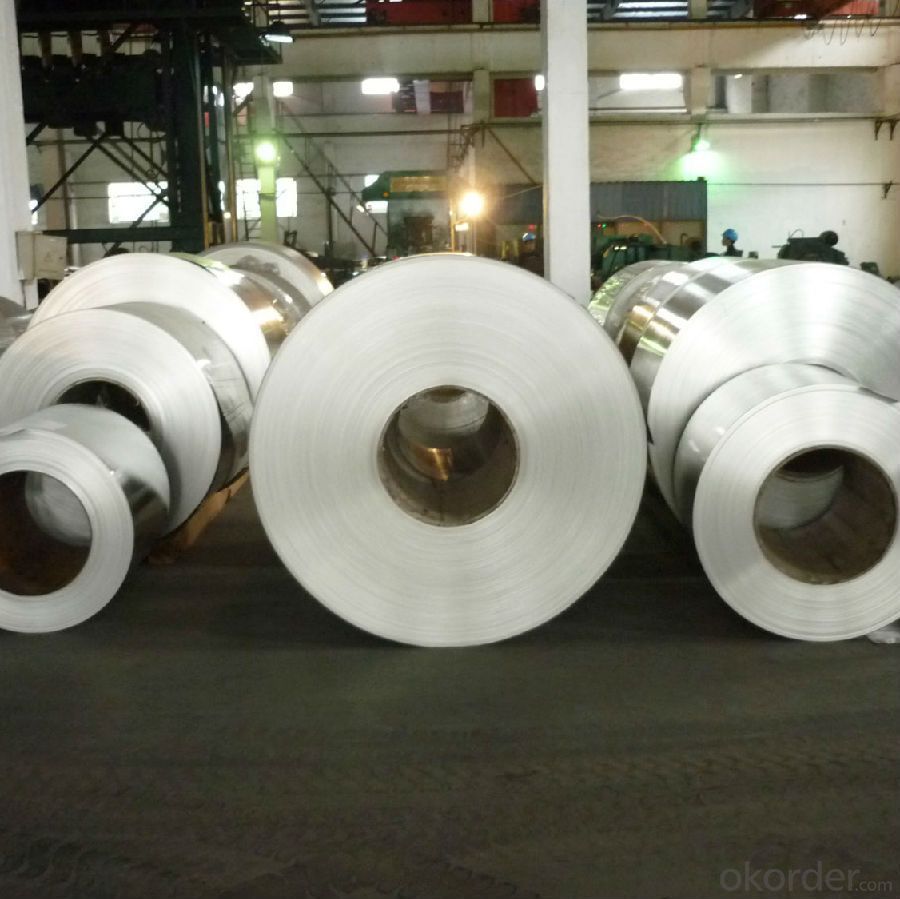
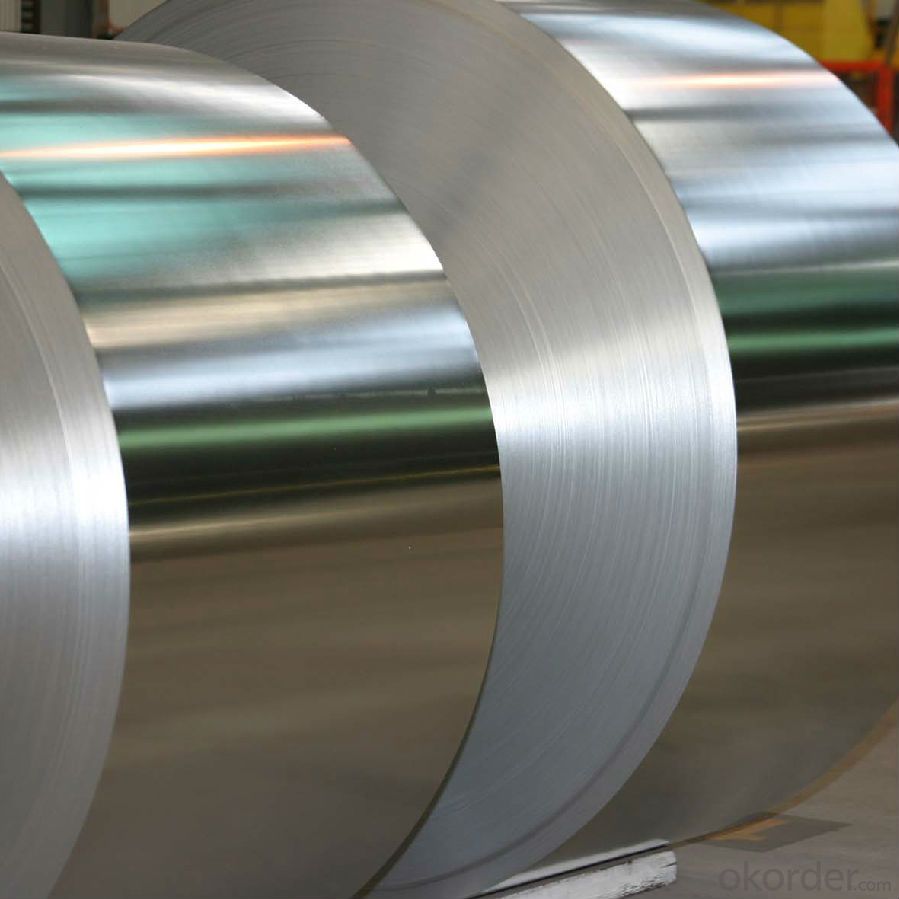
Tinplate Features
Steel Type: MR, SPCC
Temper(BA& CA): T1- T5, DR8- DR10
Coating: 1.1- 8.4g/m^2
Tickness: 0.15- 0.,50mm
Width: 600-1010mm
I.D: 508mm
Coil weight: 3- 10mt
Passivation: 311
Oiling: DOS
Surface finish: Bright, Stone
Quantity for 20 Feet FCL: 20- 25MT
Package: Seaworthy Export Standard Wooden Pallet
Application
Tinplate is widely used for making all types of containers, electrical machinery parts and many other products
Chemicals and painting cans
Dry food ccans, such as fancy cans, biscuit cans, milk powder cans, tea cans.
Liquid food cans, such as edible oil cans, beverage cans, Tomato paste cans
Sea food cans
Crown corks, easy open ends
Electrical machinery parts
Bakeware and household kitchen parts
Production Standard
GB/T 2520-2000
JIS G3303-2002
DIN EN 10202-2001
ASTM A623M-2002
ISO 11949-1995
- Q: What are the different ways to store tinplate containers?
- There are several ways to store tinplate containers, depending on the available space and the specific needs of the items being stored. Some common storage methods include stacking the containers on shelves or pallets, placing them in storage bins or crates, hanging them on hooks or racks, or arranging them in storage cabinets or drawers. The chosen method should ensure easy access, proper organization, and minimal risk of damage to the containers.
- Q: How does tinplate perform in microwave ovens?
- Tinplate is not suitable for use in microwave ovens as it can cause sparks and potentially damage the appliance.
- Q: What are the different types of tinplate edge finishes?
- There are three main types of tinplate edge finishes: single edge, double edge, and scroll edge.
- Q: Can tinplate be used for promotional items?
- Yes, tinplate can be used for promotional items. Tinplate is versatile and can be easily shaped into various forms, making it suitable for creating promotional items such as tins, cans, boxes, and containers. These items can be customized with branding and logos, making them effective promotional tools for businesses and organizations.
- Q: What are the advantages of using tinplate for aerosol cans?
- Some advantages of using tinplate for aerosol cans include its durability, corrosion resistance, and ability to maintain product quality. Tinplate cans offer a longer shelf life for aerosol products as they prevent air and moisture from entering the can, ensuring the product remains fresh and effective. Additionally, tinplate cans are lightweight, making them convenient for transportation and storage. They are also recyclable, contributing to sustainability efforts.
- Q: What are the main challenges in tinplate inventory management?
- The main challenges in tinplate inventory management include managing fluctuating demand, ensuring accurate forecasting, optimizing storage space, minimizing waste and obsolescence, and maintaining efficient logistics and supply chain operations.
- Q: How to quickly open the bottle?
- Put the tins of canned fruits soaked in hot water for 3-5 minutes, so that the tank gas temperature rises, the pressure is increased, which is the principle of expansion and contraction. Turn the canned fruit bottle upside down for a while. When the liquid in it breaks down the vacuum inside and outside, tap it in the bottom with your palm and pull it gently. It's easy to pull apart.
- Q: How is tinplate used in the automotive industry?
- Tinplate is commonly used in the automotive industry for manufacturing various components such as fuel tanks, oil filters, and battery casings due to its excellent corrosion resistance and ability to withstand high temperatures. It ensures durability and helps maintain the integrity of these parts, enhancing the overall performance and safety of vehicles.
- Q: What are the main challenges in tinplate manufacturing?
- Some of the main challenges in tinplate manufacturing include ensuring consistent quality and uniform coating thickness, managing the complex process of tin coating application, minimizing production costs without compromising product integrity, and meeting environmental regulations related to waste disposal and emissions control. Additionally, maintaining efficient supply chain management and addressing the increasing demand for sustainable packaging solutions are also significant challenges in tinplate manufacturing.
- Q: What are the recycling processes for tinplate?
- The recycling processes for tinplate typically involve collecting and sorting the tinplate materials, removing any contaminants, such as paper or plastic coatings, and then shredding the tinplate into small pieces. The shredded tinplate is then melted in a furnace to separate the steel from the tin. The steel is recovered and can be used to make new tinplate products, while the tin is commonly reused in various applications or sold as a raw material.
Send your message to us
Tinplate with Prime Quality for Cans Making
- Loading Port:
- Tianjin
- Payment Terms:
- TT or LC
- Min Order Qty:
- 25 m.t.
- Supply Capability:
- 20000 m.t./month
OKorder Service Pledge
OKorder Financial Service
Similar products
Hot products
Hot Searches
Related keywords
